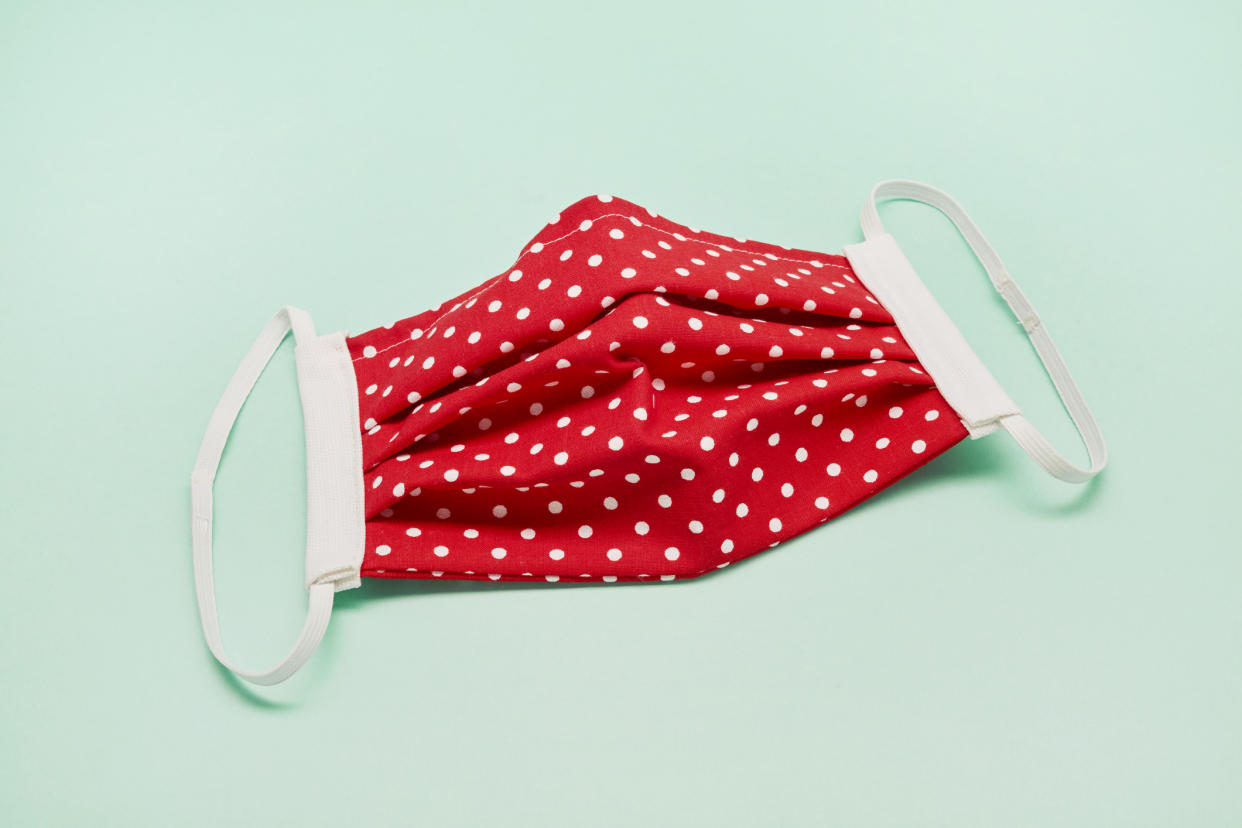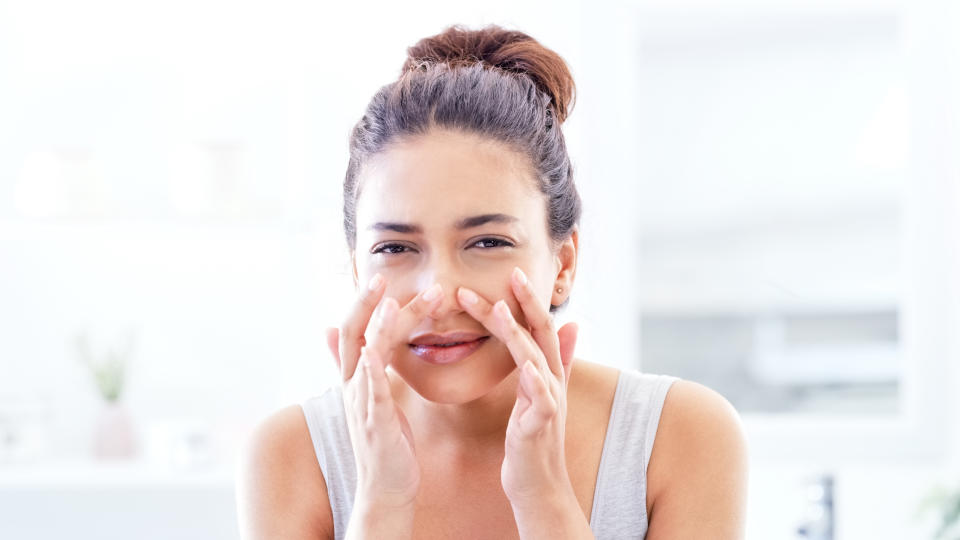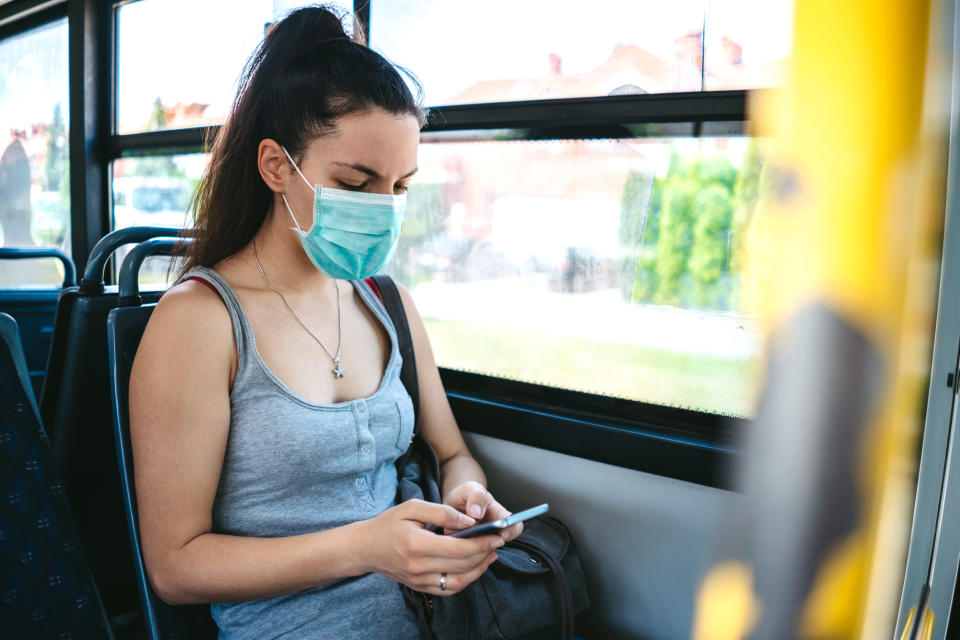How to look after your skin when wearing a face mask

So you’ve bought a face mask, you’ve given it a test run round the supermarket, and now you’re wondering why you’ve had a skin breakout.
According to government guidance, if possible, we should all be wearing a face covering in enclosed public spaces where social distancing isn’t possible.
And from 15 June, we must also wear a face covering on public transport.
But many of us aren’t used to wearing something covering our face and we can’t help but wonder what it’s doing to our skin.
Whether you choose to DIY your own mask or buy one online, as well as helping to stop the spread of coronavirus, face masks can also cause some less than ideal side effects when it comes to your skin.
Read more: Are face masks a barrier to the coronavirus?

Since the start of the COVID-19 pandemic frontline workers who wear masks as part of their PPE have been reporting problems with skin irritation, acne flare-ups and eczema.
And though, wearing a cloth face covering will cause nowhere near the levels of skin problems experienced by frontline workers, for some, having to wear a mask can result in some pretty uncomfortable irritations.
“Wearing masks for prolonged periods of time can cause pressure and friction in certain parts of the face which can lead to skin irritation,” explains Dr Qian Xu, Medical Director, Skin Aesthetics Clinic.
Material masks are prone to collecting bacteria and dirt which in turn lead to something dubbed ‘Maskne’, which is essentially breakouts and other skin issues from wearing a mask or covering.
“This is especially common over the nose and over the cheeks,” Dr Xu continues.
“It can get quite warm under the mask, and if the skin under the mask is not allowed to breathe properly, the pores can get clogged up more easily causing spots to form.”
So what can we do about it?
Tighten your mask
According to Dr Xu friction usually occurs when the mask is slightly loose and can move repeatedly against the skin. “This can be avoided by making the mask a little tighter, which also improves the effectiveness of the mask,” she explains.
“If you are using medical masks with ear loops, you can simply tie a knot at the base of the ear loops to shorten them, and fold the sides inwards to close the gap.”
Read more: Mango launches range of non-medical face masks
Only wear masks if you need to
When you are out in open spaces and other people are more than two metres away from you, there is no need to cover your face.
“If you do need to wear masks for work, try to take breaks often and change your masks several times throughout the day if possible,” Dr Xu suggests.
Go make-up minimal
Still wearing foundation? Dr Xu suggests going foundation-free when you’re wearing a covering, as the mask can push the makeup particles into the pores, which can lead to more breakouts.

Switch up your cleansing routine
Instead of waiting until bed time to clean your face, Dr Xu recommends cleansing your face thoroughly with a facial cleanser as soon as you get home. “This will reduce the amount of time the dirt and excess oils will stay on your skin, and can help prevent breakouts,” she explains.
As a general rule of thumb, in order to maintain healthy and active skin, Dr Xu says you need a good cleanser, vitamin C serum, retinol, a suitable moisturiser and a good facial sunscreen.
“If you are already on these, then you don't need to change them. Just taking the precautions mentioned above will help,” she continues.
Read more: This is how you should be cleaning your reusable face mask
But if you have tried various skincare products, but they haven't worked, then it's worth seeing a skin rejuvenation specialist to give you some guidance, as there may be factors individual to you that need addressing.
“The point of a good skincare routine is that it helps to improve the health of the skin and protect it, so that it can tolerate the environmental stresses better,” she adds.
But before you consider ditching the mask to save your skin, Dr Xu says it is worth pointing out that wearing masks for shorter periods of time shouldn’t cause too many problems though.
“But maintaining healthy skin is important, not only to prevent breakouts, but also to help slow down the ageing process,” she says.
“The skincare products mentioned above are important for everyone, not just for those wearing face masks.”



